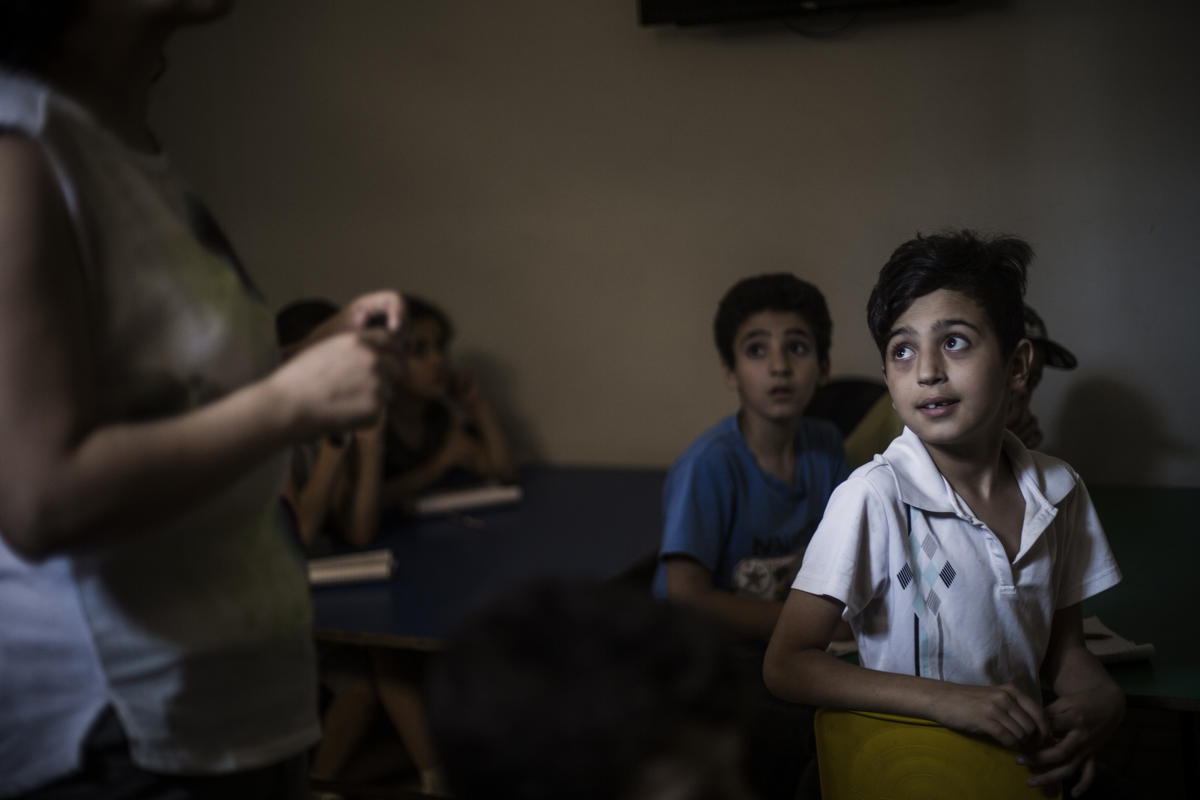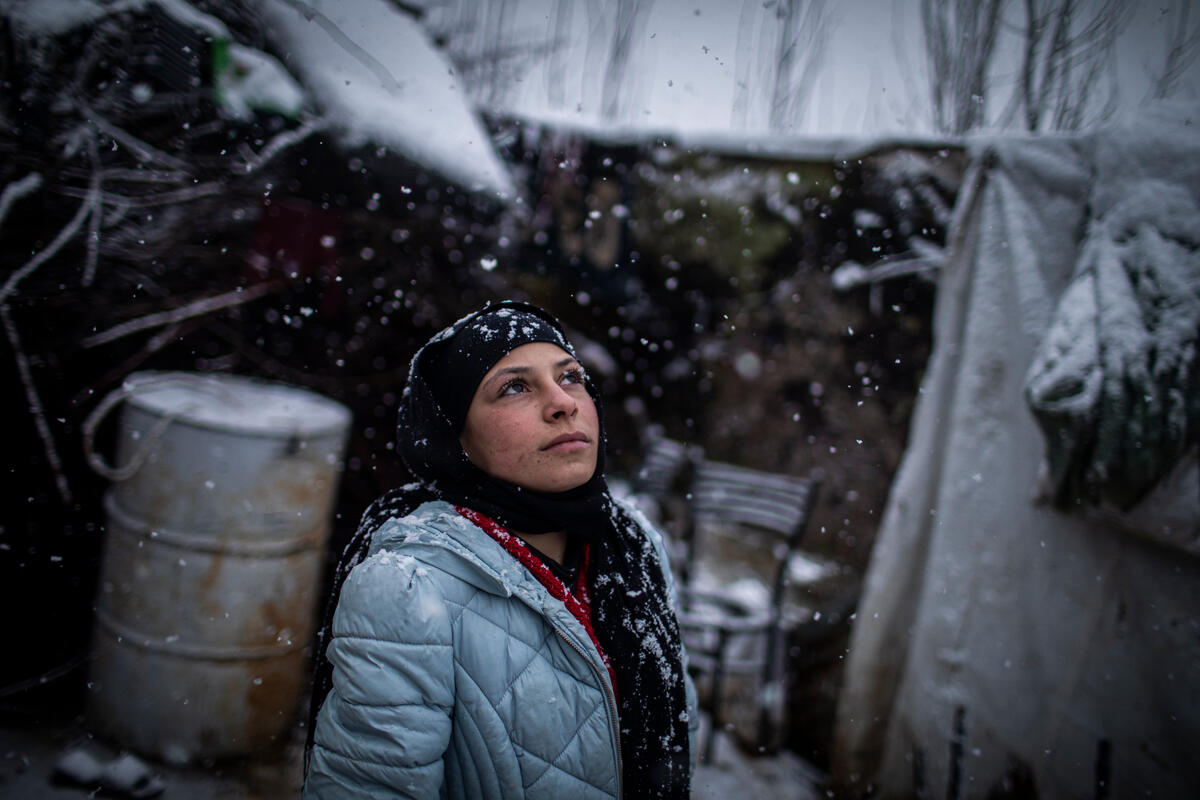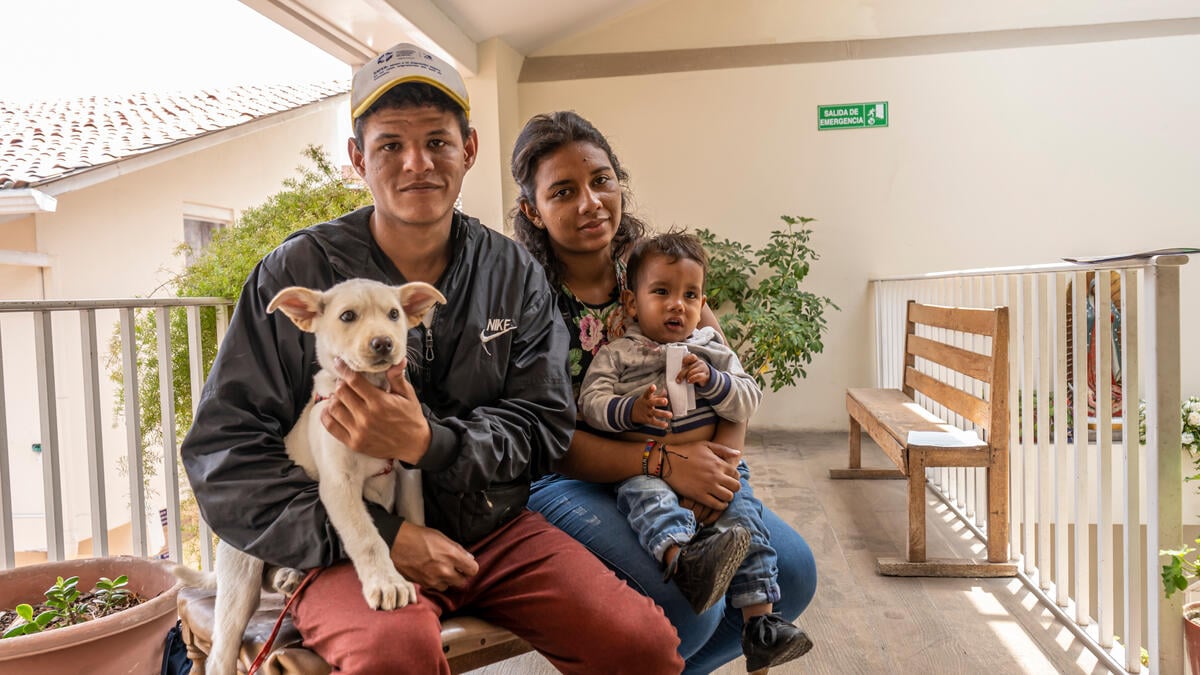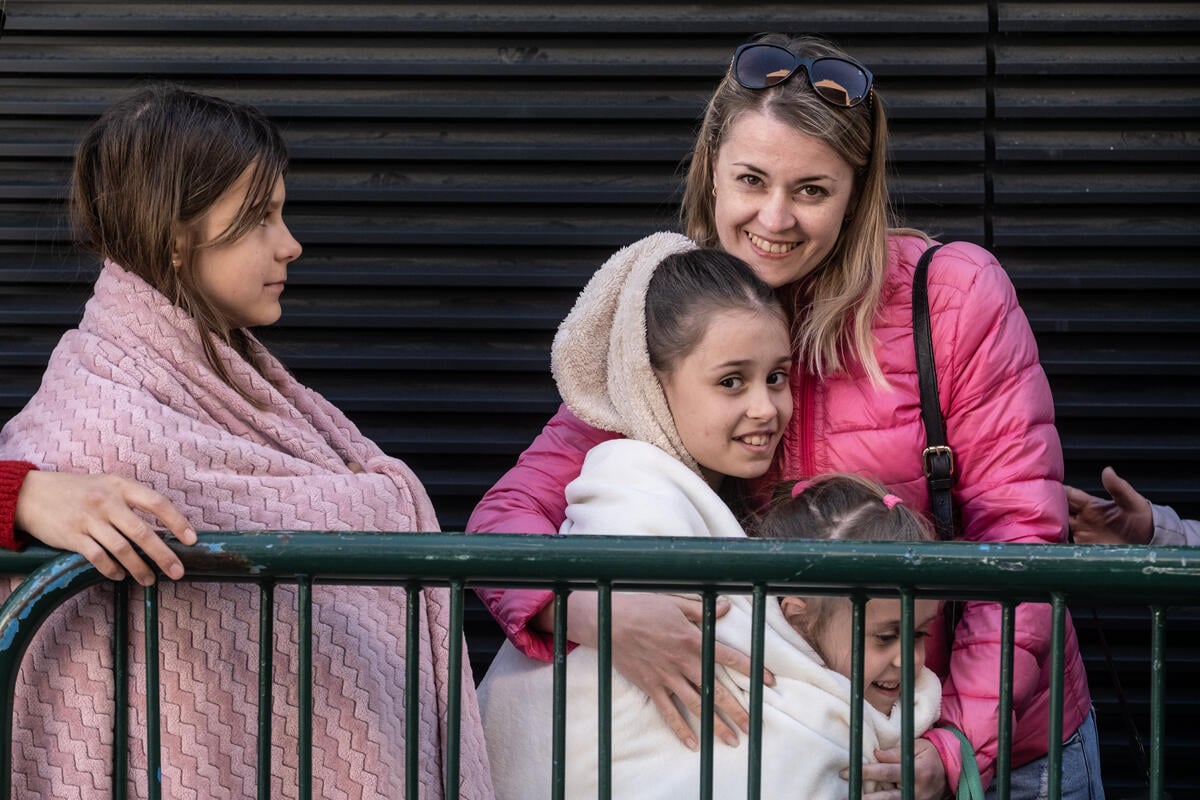Friends give Syrian children a route off the streets and back into class
In a small classroom overlooking the Mediterranean Sea, young Syrian refugees learn mathematics on portable computers – their first steps towards formal education. A few months ago, most of them were trying to make a living on the streets of the Lebanese capital, Beirut.
One of the pupils, Fahed, was just 10 when he started working at a vegetable store to help his mother make ends meet. He put in 10-hour shifts for just US$3 a day. Originally from Aleppo, he fled to Lebanon with his family in 2015 during the brutal battle for control of Syria’s second city.
“My employer used to beat me,” Fahed recalled. “If I couldn’t carry something, he would beat me and tell me I should.”
Earlier this year, however, Fahed enrolled at a learning centre run by the Borderless NGO in the Ouzai neighbourhood of Beirut, and has since stopped working. “It’s very nice here. I learn, study and laugh with my friends,” he said. Every day from 8am until noon he learns Arabic, English and mathematics.
“Education is a lifeline for all of us, but especially the young at the right time.”
“What we do is get them here, give them a basic education and try to catch up with their levels of education, and ultimately send them into the formal schools,” explained Lina Attar Ajami, a co-founder of the Borderless Centre, herself originally from Damascus.
Lina set up the centre with a Lebanese friend, Randa Ajami. They share not only the same surname, but also many values. As mothers whose children are now grown up, they know the importance of education for youngsters.
“Education is a lifeline for all of us, but especially the young at the right time,” said Lina.
Located in an underprivileged neighbourhood in the city’s suburbs, the community centre runs basic literacy and numeracy classes for more than 150 Syrian children. The classes are a route into formal education, giving refugee children the basic learning they need to enter government-run catch-up programmes.
“Most of them [have not] been to school before because of their situation,” explained Samah Hamseh, who teaches English here. “They come in order to have the chance to go to school. They want to get out of the conditions they are living in.”

Lebanon hosts more than 935,000 registered Syrian refugees, the highest concentration of refugees in proportion to the national population, which is just over six million people. More than half of Syrian refugee children in the country do not attend formal education, even though the Lebanese authorities have organized special afternoon shifts in state-run schools for Syrian students.
Many children have also missed years of schooling and struggle to meet the minimum educational levels required to enrol.
To address this, the Lebanese Ministry of Education has published a framework for non-formal education that is designed to give children who have been out of the classroom for at least two years – or never been at all – a chance to enter public schools.
This is achieved through accelerated education programmes, aimed at helping children who are out of school to catch up with the curriculum. A minimum level of learning is required to attend accelerated education programmes, which is where community centre programmes offering basic literacy and numeracy classes, such as the Borderless centre in Beirut, have a role to play.
Over the past two years, more than 90 children from the centre have gone on to enrol in public schools.
Even where children are unable to enrol because of a lack of places or funding, the programme still provides important benefits, said Vanan Mandjikian, Assistant Education Officer for UNHCR’s Mount Lebanon field office.
“This programme is essential for the future … because basic literacy is something very important for every child,” she said.
This story is featured in UNHCR's 2019 education report Stepping Up: Refugee Education in Crisis. The report shows that as refugee children grow older, the barriers preventing them from accessing education become harder to overcome: only 63 per cent of refugee children go to primary school, compared to 91 per cent globally. Around the world, 84 per cent of adolescents get a secondary education, while only 24 per cent of refugees get the opportunity. Of the 7.1 million refugee children of school age, 3.7 million – more than half – do not go to school.










